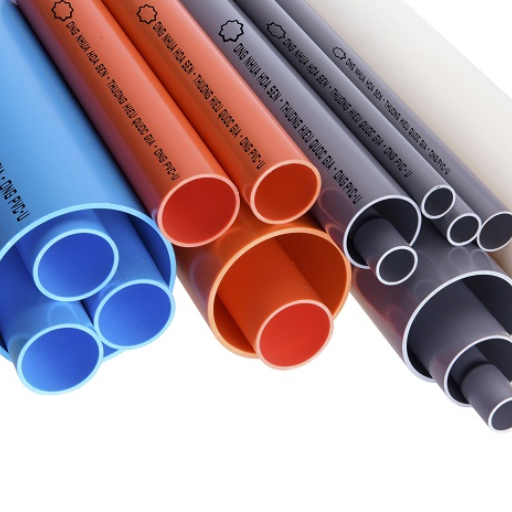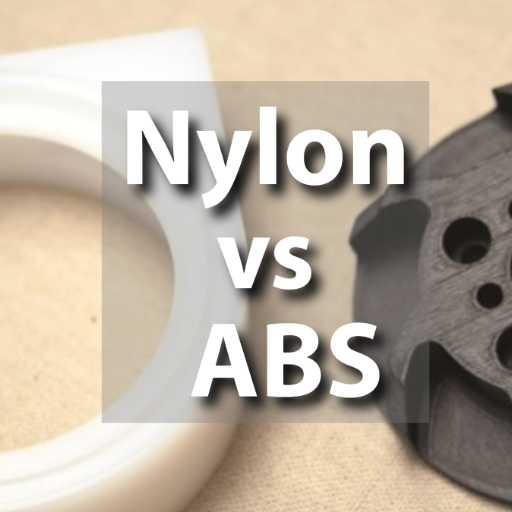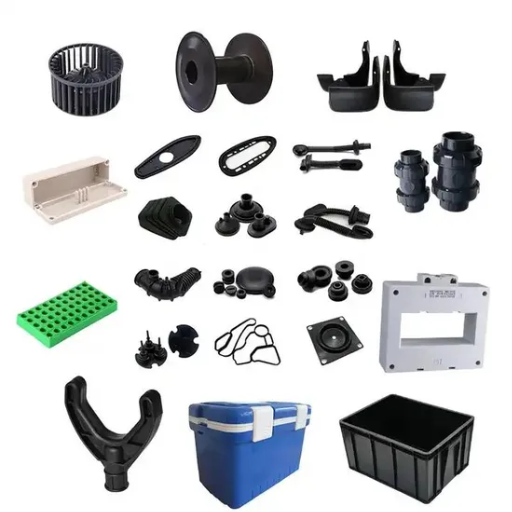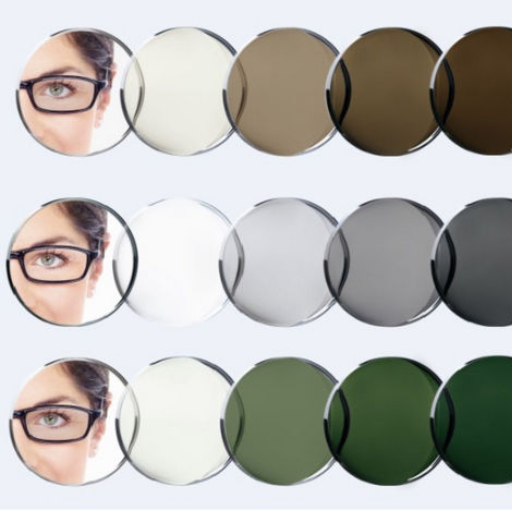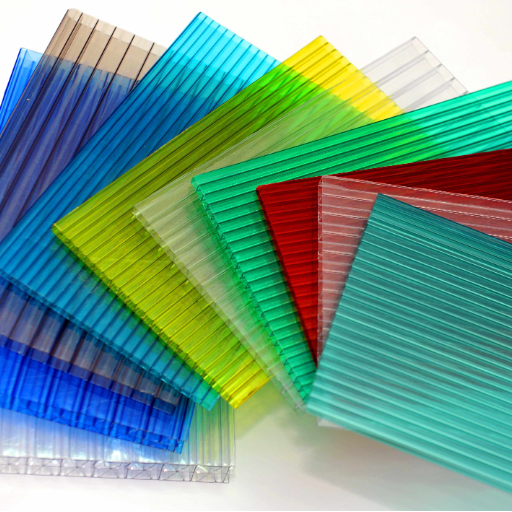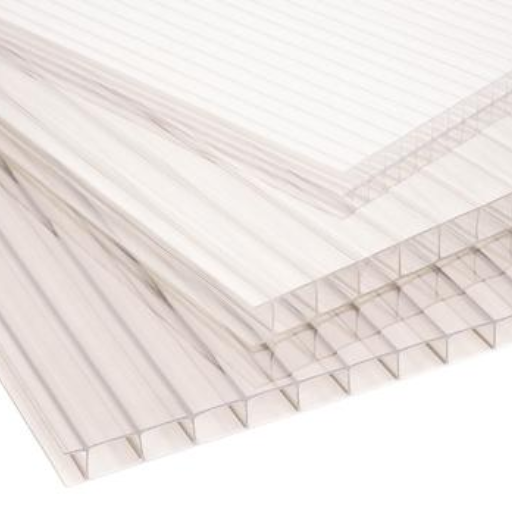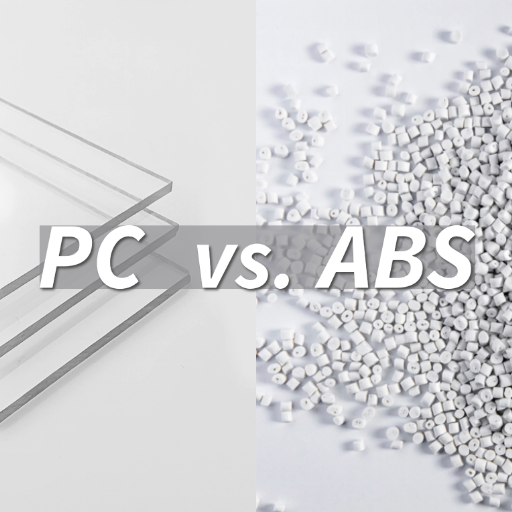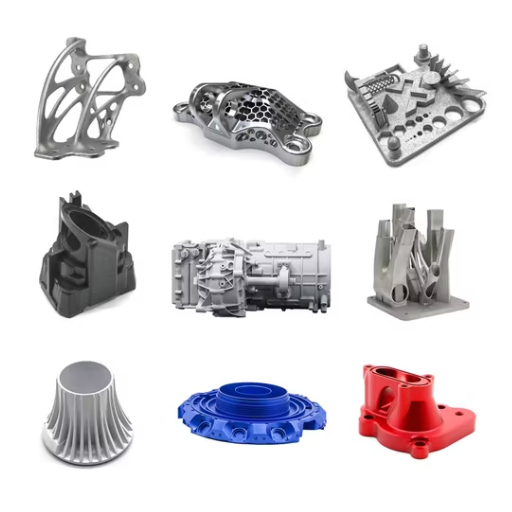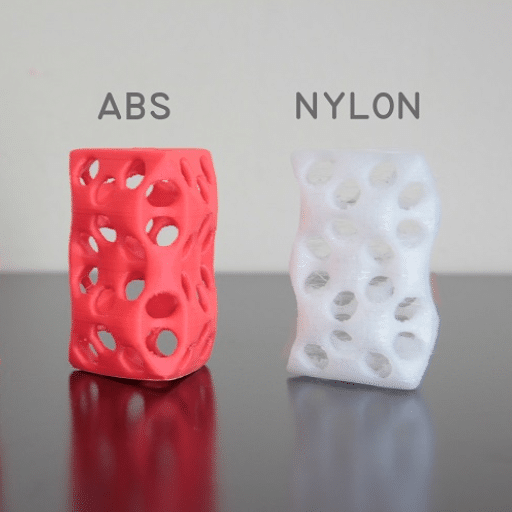POM plastic, whose particular strength, stiffness, and resistance to forceful abrasion makes it useful in modern manufacturing, especially in the injection molding sector, is arguably the most valuable tool in the industry today. One of the most specialized companies in this area is Easteel, a reputable company that provides POM plastic molding services to meet the advanced needs of the industry. In this blog, you will gain insights regarding Easteel’s capabilities, the technical benefits of POM plastic, precision POM plastic molding, and excellent customer service. If you are looking for high-end suppliers for your product designs, this blog will provide you with key factors and highlight the value Easteel brings to the industry.
How Does POM Plastic Injection Molding Work?

POM plastic injection molding is a sophisticated process of synthesizing that begins with injecting molten Polyoxymethylene (POM) into a pre-designed mold cavity at high pressure. The first stage involves the choosing of the POM material, which serves as the adequate resin due to its excellent mechanical and dimensional properties. The resin is subsequently heated until it is in a completely liquid state, ensuring a proper mix throughout. The mold is then filled with the molten material at the required pressure. After cooling and solidifying in the mold, the POM part is ejected and is now ready for further processing or usage. This technique utilizes the unparalleled strength, low friction, and wear resistance of POM, making it preferred for the fabrication of complex and highly efficient components.
What is the Injection Molding Process for POM?
This process incorporates high precision POM Injection Molding. In this process, POM granules must be dried first, taking into account that drying can result in moisture-related defects. Even a single drop of water can severely impact the final product, so utmost care is necessary. After the granules are dry, the dried resin is fed into the Injection Molding machine where it is melted. The recommended melting temperature should be between 190°C and 230°C.
To accommodate the granules, the system’s high-pressure system design must also be considered. The molten POM is injected into a cavity mold that is designed for a specific shape and requires varying tolerances and a structural POM injection molder. The injection speed, mold temperature, which is normally 80 °-120 °, and the pressure, are vital variables to the process which need to be maintained for optimum versatility. The best results come with unmolded parts that have heightened internal stresses. After precise cooling, the molded part is ejected while ensuring the molded part remains undamaged.
For ease of acceptance and integration of the parts into tools and machinery, keys and other assembly features are injection molded to be positioned on and integrated with parts that are plain and cannot be assembled within the internal cavities. The elements produced show extraordinary resilience, easy-to-use performance, excellent chemical resistance, and great durability, such as precision parts, electrical components, automobile gears and parts, and much more.
Key Attributes of POM Plastic in Manufacturing
Polyoxymethylene (POM) plastic, or acetal as it is more popularly known, is widely appreciated for its complexity in mechanical and chemical properties. One of its most notable attributes is its high stiffness and dimensional stability making it suited for precision components that have tight tolerances. POM has exceptionally good wear resistance and low friction, both of which are ideal for movements and sliding actions such as those in gears and bearings. Furthermore, this material is capable of withstanding high levels of mechanical stress over a considerable temperature range, often performing between -40 °C and 120 °C.
Another notable feature of POM plastic is its remarkable resistance to most chemicals and moisture. It can be exposed to fuels, solvents, and weak acids without much degradation which makes it valuable for automotive and industrial uses. Additionally, its low moisture absorption makes it even more ideal in humid conditions. Plastic is also very light and has good Moldability which makes for economical manufacturing processes along with decreased weight.
Finally, its electrical insulation property is very useful for electrical and electronic components. POM plastic is nonconductive and retains its insulating properties in a range of environmental settings. In addition to its resilience, durability, and ease of fabrication, POM is preferred in a wide array of high-performance applications from automotive to consumer goods.
Why Choose Easteel for Your Injection Molding Needs?
Easteel is a leader in injection molding due to its focus on detail, cutting-edge technologies, and dependability. Thanks to modern manufacturing capabilities and effective quality audits, every part produced by Easteel meets set requirements with specifications. The company has extensive experience in engineering and the selection of materials, providing necessary solutions for the most complex industrial needs. Easter has developed advanced facilities to optimally operate in the manufacture of sophisticated parts and components while still avoiding high production costs during the production cycle.
Also, Easteel accepts the challenge of cutting down on environmental pollution by embracing strategies that minimize waste and material use. Its customer service team works in unison with customers by helping with every step from the design phase to final production. Casteel continues to prove that they are a leader in the industry by being able to provide outstanding quality injection molding services for the automotive, consumer goods, and electronics industries.
What Products Can Be Made with POM Plastic Injection Molding?

Polyoxymethylene (POM) has a great November 21, 2021 versatility in plastic injection molding and is widely used for manufacturing precision components due to its high strength and low friction. Products manufactured with POM are gears, bearings, fasteners, zippers, automotive parts like fuel system components and pump housings, and electrical components such as connectors and switches. Because of its durability and resistance to wear, POM is the ideal material for parts manufacturing in the automotive, electronics, and consumer goods industries.
Common Applications of POM Plastic Parts
Due to excellent physical characteristics and dimensional stability, POM plastic parts are in popular demand and are broadly utilized across various fields. The automotive industry is one major sector where POM is used for fuel system parts, trim items, pump housings, and even seat belt parts because of its resistance to fuels, oils, and other mechanical wear.
In the electronics sector, POM has been one of the go-to materials for decades to manufacture precision parts like switches, connectors, and even housings for electric devices. Components that undergo repeated mechanical motion benefit from low-friction and high-durable materials like these.
Besides, POM is widely used for components in industrial machines such as gears, bearings, and even conveyor belts owing to its toughness and Low coefficient of friction. POM also finds application in other consumer goods like zippers, fasteners, and even kitchen utensils because of its strong but flexible properties, alongside resistance to chemicals and moisture.
These applications show just how much flexibility POM provides and why it is critical for manufacturing many dependable and long-lasting parts for various and complex industries.
Customizing POM Products for Specific Requirements
Meeting industry specifications requires modifying the base properties of Polyoxymethylene (POM) Products for enhanced performance. The first step is selecting an appropriate grade of POM—either a homopolymer or a copolymer. Homopolymer grades are stronger and stiffer, while copolymer grades have superior chemical resistance and stability over a wide range of temperatures.
Fillers and additives are sometimes used to change POM’s mechanical and chemical properties. A good example is tensile and dimensional stability improvement from the addition of glass fibers. The use of lubricants such as PTFE serves to reduce friction for moving parts like gears and bearings. There’s also the introduction of UV stabilizers for products that are exposed to prolonged sunlight.
The choice of production method also impacts customizability. Injection molding, extrusion, or machining processes can all be altered to achieve specific tolerances or complexities. The use of post-production treatments like annealing can further increase mechanical strength and thermal resistance. Manufacturers can produce POM components with stringent criteria for performance in automotive, aerospace, electronics, and industrial equipment by utilizing these modifications.
Innovative Solutions for Diverse Industries
Because of its customizable properties and high-performance characteristics, Polyoxymethylene (POM) has shown multi-industry versatility. In the automotive industry, POM is applied in fuel system parts, interior systems, and fine engines because it has low friction, is strong, and is resistant to chemicals and fuels. It is used in the electronics industry for manufacturing connectors, switches, and housings because it has good electrical insulation as well as dimensional stability.
In the medical field, POM is biocompatible and has high resistance to sterilization, so it is used in inhalers, surgical tools, and dental devices. Industrial equipment manufacturers use it for machine components such as pump parts, bearings, and conveyor systems because it can endure high mechanical stress and high temperatures. These applications highlight the reliability and versatility of POM providing specific industry solutions which satisfy rigorous operational demands.
Why is Easteel a Leading Supplier in Injection Molding?

Easteel is a leading supplier in injection molding due to its commitment to precision engineering, use of high-quality materials, and advanced manufacturing processes. The company leverages state-of-the-art technology to ensure consistent production of complex and durable components, meeting stringent specifications across diverse industries. Its expertise in material science, particularly with polymers like POM, enables Easteel to deliver tailored solutions that optimize performance and durability. Furthermore, Easteel’s focus on quality control and customer-centric services solidifies its reputation as a trusted partner in injection molding.
Capabilities and Capacity of Easteel’s Production
Easteel’s production capabilities stem from state-of-the-art injection molding technologies along with a myriad of advanced machines that allow them to manufacture components with great accuracy. Casteel also operates with several high-pressure molding machines that can effortlessly take on complex geometries while also achieving tight tolerances. Easteel can provide varying levels of customer service and meet nearly every demand thanks to its ability to support low-volume prototypes as well as large-scale manufacturing. The company has a broad range of polymers, and even engineering plastics such as POM, which guarantees that the optimal material will be chosen for its purpose. Easteel, as a leader in the field of injection molding, can provide comprehensive solutions from design consultation to final production which, when combined with their robust quality assurance framework, ensures that the optimal solution is available. Communicate with superior customer service.
Professional Service and Quality Assurance
Easteel prides itself on delivering professional services through a commitment to precision, reliability, and focus on the customer. Their skilled staff provides expert consultation at every step of the manufacturing process which includes material choosing, design improvement, production, and even delivery. Easteel’s facilities are certified to ISO 9001 standards, and as such, they guarantee that both industry standards and the requirements of their clients are fully achieved. As Easteel was concerned about identifying and eliminating defects in its products and processes, it integrated in-line inspections, automated testing systems, and statistical process control (SPC) into its daily business operations. By using these advanced methods of quality assurance, Easteel ensures long-term value and trust for its clients.
Customer Success Stories and Testimonials
Easteel’s accuracy and commitment to their clients have netted them commendable reviews from clients in multiple industries. One of Easteel’s manufacturing clients noted that their deep understanding of material selection and design optimized product durability, which resulted in a 20 percent reduction in production costs. Another client, belonging to the aerospace sector, praised Easteel’s defect-free components quality assurance processes that surpass the compliance constraints of the industry. Furthermore, a major construction company recognized Easteel’s solutions for sharp improvement in supply chain efficiency through a delivery solution framework that addresses sophisticated project needs within limited timelines. These cases magnificently portray Easteel’s determination to persistently deliver phenomenal and undeniable results to their customers, and further prove their unmatched dedication and focus on the client’s needs.
What Should You Expect When Working with a POM Plastic Injection Molding Manufacturer?

A plastic injection molding manufacturer for POM should have well-defined engineering abilities as per the set requirements. POM is notable for its very high mechanical strength, low friction, and outstanding dimensional stability, but mold design specialization is a must for such materials to perform adequately and uniformly. The manufacturer has to advise on the material grade, advanced molding processes, and quality assurance measures to provide components without defects and offer reasonable production periods, compliance to standards, and other relevant procedures such as prototyping and post-processing services for the cost-effectiveness of the project. Prompt communication and technical support during the entire duration of the project are critical to conducting the tasks with little to no errors. A trustworthy partner will assure their clients of this benefit.
Understanding Lead Time and Production Schedules
The lead time and production schedule are of great importance to the POM plastic injection molding manufacturer. The lead time captures the entire time frame from placing the order to receiving the completed parts. Some of the more important ones are Mold design complexity, the grade of POM material used, any prototyping steps that may be involved, and post-processing like machining or finishing touches. In many cases, manufacturers try to optimize their production schedules using advanced engineering methods so that tasks like mold making, number of molding cycles, quality control inspections, etc. are done in such a manner that there are no unnecessary delays.
Production schedules must also coincide with the client’s deadlines in the same way. Early communication is very useful to accurately predict scheduling milestones as well as define tool changes or busy seasons that may become problematic. So, to meet aggressive deadlines without sacrificing quality, reputable manufacturers employ automated systems and lean manufacturing techniques. In addition, compliance with established standards guarantees an effective and consistent production cycle. A more open and better-coordinated scheduling approach increases confidence that the necessary project scope will be completed within the set time and financial budget and meet all requirements of the project.
Cost Considerations and Budgeting
Effective cost considerations and budgeting strategies are critical for ensuring a successful production cycle while maintaining financial efficiency. Key cost factors include material expenses, labor, equipment usage, energy consumption, and potential overhead costs such as storage or logistics. Accurate cost estimation begins with a detailed breakdown of inputs and their associated pricing, ensuring that all variables are accounted for.
A proactive approach to budgeting includes incorporating buffer provisions to absorb unforeseen adjustments without disrupting overall financial planning. Advanced tools such as cost modeling software enable manufacturers to analyze multiple production scenarios, ensuring resources are allocated optimally. Additionally, integrating lean manufacturing principles minimizes wastage and improves cost efficiency, directly impacting the project’s bottom line.
Transparent communication with clients during the budgeting phase further ensures alignment on expectations and helps avoid unexpected financial deviations. Finally, consistent monitoring of project phases against the allocated budget supports real-time adjustments, maintaining alignment with the financial framework while delivering a high-quality outcome.
OEM and Customization Options Available
OEM custom solutions make sure unique client needs are met appropriately by guaranteeing effective performance. OEM services normally comprise the production of a specific product based on the client’s design specifications which speeds up the integration process within existing structures. On the flip side, Customization goes beyond basic designs to include specific materials, parts, sizes, and other features that vary per use case or industry requisites.
Customization can also take the form of surface treatments, branding modifications via laser engraving or logo painting, and other relevant functional changes to meet unique operational requirements. Advanced consultation processes guarantee that customer needs are thoroughly examined, and enhanced by prototype products and test cycles to determine the efficacy of the design. A business is able to achieve quality and custom-fit solutions by taking advantage of experienced engineering resources and advanced level manufacturing equipment.
In the modern competitive climate, it is important for businesses to boost service offerings and improve system compatibility which will in turn enhance performance through precision OEM custom solutions. Business can now differentiate their offerings through these services making them essential tools in competitive markets and industries.
How to Choose the Right POM Plastic Injection Molding Service?

A lot goes into choosing a company that performs plastic injection molding for POM, but these key factors should be prioritized. Find out if the service has the necessary expertise and experience to accurately and durably work with POM materials as it is quite important. Then, check the quality of their equipment and technological capabilities to ensure they consistently maintain production standards. Of course, their level of customization such as designs, surface treatments, and prototypes should be looked at too. It is also helpful to ask for some sort of evidence showing successful case studies or industry-compliant certifications. Lastly, try to see how well communication would go and whether the assistance provided will facilitate the other side of the collaboration.
Factors to Consider When Selecting a Supplier
When selecting a supplier for POM plastic injection molding services, several critical factors merit attention to guarantee optimal performance, reliability, and efficiency. First, assess the supplier’s technical expertise with POM material, as it requires precise processing conditions to achieve durability and dimensional stability. Verify their experience in handling complex projects and producing high-quality components.
Next, evaluate the supplier’s equipment and technological capabilities. Advanced and well-maintained machinery is crucial for consistent manufacturing and maintaining precise tolerances. Ensure their facilities comply with industry standards and incorporate modern innovations to improve production efficiency.
Customization options are also paramount. Review the supplier’s ability to accommodate specific design requests, surface finishing techniques, and prototyping services. This adaptability can benefit projects requiring unique or complex specifications.
Additionally, prioritize suppliers that can provide case studies or references showcasing successful past projects. Certifications such as ISO 9001 can signify adherence to quality standards and reliable processes. Lastly, effective supplier communication is essential—select a partner capable of offering clear collaboration and responsive support to resolve project challenges efficiently. These combined aspects will streamline operations and bolster the project’s success.
Evaluating the Quality of Molding and Overmolding
When assessing the quality of molding and over-molding, start by examining the material selection. High-quality molds rely on appropriate material compatibility between the substrate and the overmold to ensure optimal adhesion, durability, and functionality. Verify that the supplier uses high-grade resins or elastomers, tailored to meet the project’s mechanical, chemical, and thermal requirements.
Precision in tooling is critical for maintaining tight tolerances and ensuring part consistency. Well-designed molds should exhibit minimal defects such as flash, warping, or voids. Inspect whether the manufacturing process involves state-of-the-art equipment like CNC machines or automated systems for increased accuracy.
Another crucial factor is process control. Evaluate if the supplier has robust systems in place for monitoring parameters such as pressure, temperature, and injection speed. Advanced techniques like Scientific Molding provide data-driven insights to optimize production and reduce variation.
Furthermore, post-production quality assurance must be rigorous. Leading manufacturers often conduct dimensional inspections, mechanical testing, and visual assessments to validate the integrity and functionality of the molded components. Certifications like ISO 9001 or IATF 16949 indicate adherence to these stringent quality control practices.
Finally, review the supplier’s track record and client testimonials. Case studies or direct referrals can offer insights into their experience with complex designs, material challenges, and scalability. Combining these evaluations will help ensure the molding and over-molding processes meet both quality and performance expectations.
Comparing Different Manufacturers and Services
When comparing different manufacturers and services, it is essential to evaluate several key factors to distinguish their capabilities. First, assess their technological resources and equipment. Top-tier manufacturers typically utilize advanced machinery, such as multi-axis CNC machines, automated injection molding systems, and modern overmolding technologies. These systems enable consistent precision and efficiency in production.
Next, examine their material selection expertise and adaptability. Companies with a diverse material portfolio and experience working with advanced polymers, elastomers, thermoplastics, or biocompatible materials demonstrate the versatility required for complex projects. A reputable manufacturer will provide material data sheets, testing results, and expert consultation to ensure the chosen material meets design and performance criteria.
Standards compliance and certifications are critical indicators of quality. Leading manufacturers adhere to ISO 9001 for quality management and may also meet industry-specific requirements like IATF 16949 for automotive components or ISO 13485 for medical devices. These certifications highlight their commitment to maintaining stringent quality assurance practices.
Finally, evaluate their customer service and project management capabilities. Reliable manufacturers prioritize effective communication, transparent pricing, and adherence to deadlines. Look for suppliers that provide detailed project tracking, regular progress updates, and support for scalability as production demands grow. Client testimonials, case studies, and online reviews from trusted sources can further validate their performance, helping you choose the best partner for your manufacturing needs.
References
Frequently Asked Questions (FAQ)
Q: What makes Easteel a leading POM plastic injection molding supplier?
A: Easteel is recognized as a leading supplier due to its high-quality custom plastic injection solutions, expertise in molding processes, and a broad range of services including CNC machining, prototype development, and die casting. The company is known for its cost-effective and high-precision manufacturing solutions that meet diverse client specifications.
Q: How does Easteel ensure high precision in its plastic injection molding processes?
A: Easteel employs advanced CNC machining and state-of-the-art machines to ensure high precision in its plastic injection molding processes. This allows them to deliver components with tight tolerances and meet exact client specifications.
Q: Can Easteel handle custom orders for plastic injection molding?
A: Yes, Easteel specializes in custom plastic injection molding, offering OEM and ODM services to cater to specific customer needs. They can accommodate small to large orders and provide tailored solutions that align with client requirements.
Q: What types of materials can Easteel work on within their injection molding processes?
A: Easteel works with a variety of materials including POM, nylon, and other plastic materials, as well as metals such as aluminum, copper, stainless steel, and alloy steel to deliver high-quality components suitable for various applications.
Q: Does Easteel provide prototype development services?
A: Yes, Easteel offers prototype development as part of its comprehensive services. This allows clients to evaluate a sample before mass production, ensuring the final product meets all specifications and requirements.
Q: What are the benefits of choosing Easteel for plastic injection molding?
A: Choosing Easteel offers several benefits including high precision, cost-effectiveness, reduced lead times, and access to a one-stop manufacturing process. Their expertise in die casting, assembly, and vacuum forming services further enhances their ability to deliver complete solutions.
Q: How does Easteel ensure quality and consistency in its products?
A: Easteel employs rigorous quality control measures throughout the manufacturing process. They use high-quality tools and machines to maintain consistency and ensure each product meets the set standards and specifications.
Q: What industries does Easteel serve with its plastic injection molding services?
A: Easteel serves a variety of industries, including automotive, hardware, and consumer goods, providing components that require high precision and quality. Their ability to handle complex designs and deliver competitive solutions makes them a preferred supplier across different sectors.
Q: Is Easteel able to provide solutions for complex and high-precision components?
A: Yes, Easteel is equipped to handle complex and high-precision components, thanks to their advanced CNC machining and die casting capabilities. They are able to deliver solutions that meet detailed specifications and high standards.
Q: How does Easteel support its clients in reducing costs and increasing efficiency?
A: Easteel helps clients reduce costs and increase efficiency by offering competitive pricing, optimizing the manufacturing process, and providing cost-effective solutions without compromising on quality. Their expertise in engineering and manufacturing allows for efficient production and timely delivery.






